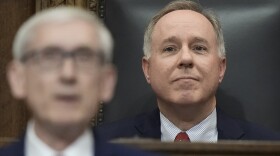The history of the Hmong people in Wisconsin goes back decades, to 1975 when thousands of Hmong were resettled in the U.S. after aiding American troops during the Vietnam War. Many landed in cities like Milwaukee, Green Bay, and Wausau. The Hmong are in fact the largest Asian minority in the state and in cities like Wausau, they represent more than 11 percent of the total population.
But although many Hmong have lived here for generations, they continue to face discrimination. After 40 years in the area, many people still think of them as refugees and treat the Hmong like outsiders. In her recent Atlantic article, reporter Doualy Xaykaothao looks at the racial tensions that continue to divide the city of Wausau.
"There are areas in Wisconsin where Hmong say they will never venture into. It's just too dangerous."
"Wisconsin is very much a fishing, hunting, outdoors kind of a place and it's a wonderful place for so many people, but there are areas in Wisconsin where Hmong say they will never venture into. It's just too dangerous," says Xaykaothao.
Xaykaothao knows exactly what it’s like to be both Hmong and American. She was born in Laos, but raised in Texas and even spent some time in Wausau as an intern in the mid-1990's. Xaykaothao was inspired to move to Wausau by another Atlantic article, "The Ordeal of Immigration in Wausau."
She says the article was almost like an opinion piece, which blamed the Hmong for overcrowding schools, spending taxpayer money, and causing gang violence. But once there, Xaykaothao had more issues with the so-called "natives" of Wausau than the Hmong.
"It wasn't a good experience. Even when I was just jogging around town people would drive by and you know, actually shout out, 'Go back to where you came from,' or I would go on to particular assignments and people would treat me pretty badly," she says. "There were just so many memories that really left me feeling like this wasn't a place I would want to grow up."

Wausau was one of the first cities in the U.S. to start accepting Hmong refugees after the Vietnam War. Until recently, very little was known about Hmong involvement in the Vietnam War, and the CIA's Secret War is still not taught in most schools. That lack of information contributed to the controversy of accepting Hmong refugees, who many Wisconsinites couldn't distinguish from Viet Cong.
And while people outside the Hmong community may notice the huge strides they've made over the last few decade, misperceptions still linger. Hmong teens are often accused of being in gangs, and their parents struggle to find work because of preconceived ideas about their capabilities as employees.
"If people really took the time to understand the sacrifices that the Hmong made in terms of giving up their land, giving up their loved ones, then maybe they wouldn't be so quick to condemn this group," says Xaykaothao.
Community leaders in Wausau have tried to mend some of these racial divides. There have been panels, forums, and academic discussions on how to bridge the gap between these communities. But ultimately, Xaykaothao says that real change must come from "natives" of Wausau, neighbors and co-workers.
"The very simple of act of just saying, 'Hey!' You know, 'Do you want to go fishing with me?' 'Hey, do you wanna come over to my house and have a beer,' 'Do you wanna come hang out one night and just watch football," she says. "And those simple acts I think can really change how different people view each other. It's just that simple."






